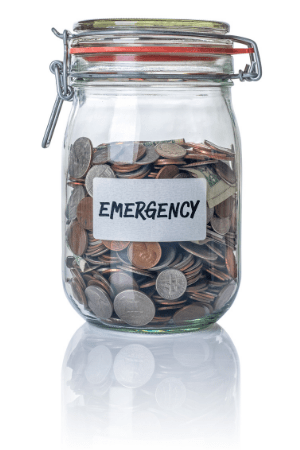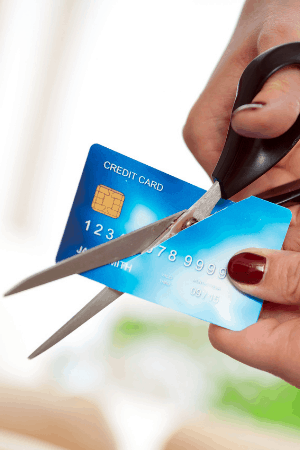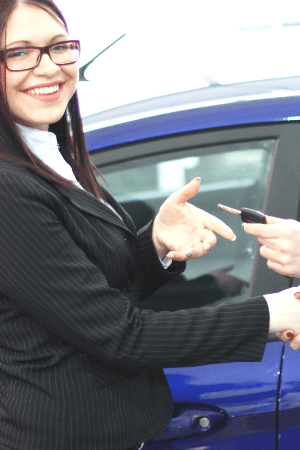Dave preaches the importance of having an emergency fund so much so that this is actually the first baby step on his list.
An emergency fund is really important because it provides a cushion as you enter into this journey of paying off debt and achieving financial freedom.
In the event of an emergency, whether it is car troubles, medical or otherwise, an emergency fund is something you can dip into without hindering your debt payoff process. Dave’s suggestion is starting with a $1000 emergency fund.
But remember that your emergency fund should always be easily accessible and should of course be used for EMERGENCIES ONLY.

2. Pay off Debt Using Debt Snowball
Dave Ramsey believes that you should make an attempt to pay off all debt (with the exception of your mortgage). There are many different methods that can be used when paying off debt. However, the easiest and best according to Dave Ramsey is the debt snowball method.
Debt snowball means tackling one debt at a time, from the smallest to the largest. You start off by paying all your extra money towards the smallest debt whilst still paying the minimum on all the others.
As you are finished with the first debt, you can then move on to the second, putting all your extra money towards this one whilst still paying the minimum on the others.
You’ll continue doing this until all your debt is paid off. And as each debt is finished, you now have even more money to put towards the other larger debts.
3. Get rid of your Credit Cards
Dave Ramsey believes that people who are trying to achieve financial freedom should not own credit cards. This is especially for the person who lacks self control and who cannot stop spending.
You typically hear the saying ‘just charge it to my card.’ Do you know that charging it to your card means you are borrowing this money?
Get in the habit of not making purchases unless you have the cash to pay up front. Or if you MUST keep your credit card, be sure to pay it back straight away to avoid high interest fees.
However, Dave would probably encourage you to cut them up and throw them out! BYE FELICIA!

4. Create a Zero Budget
A Zero Based Budget is one that requires you to budget and account for every single dollar you’re receiving each month. After you create your budget, your total income minus your total expenditure must be equal to zero!
Dave suggests using a zero based budget for better money management, debt payoff and financial freedom.
In fact, this is the budgeting method that I use to smash all my financial goals each month. We have used this in the past to save $24 000 in 7 months, to pay off debt and manage our finances along the way!

5. Use the Cash Envelope System
Because Dave encourages the use of cash instead of credit cards, the cash envelope system is a great method to use to master money management.
The cash envelope system requires you to create a budget and use different envelopes to keep your money for groceries, rent, bills etc. separately. This way you can keep track of how you’re spending your money and it’s way easier to actually stick to your budget!
Earlier we spoke about creating a zero based budget. This means that every dollar in your budget will have already been assigned to a particular category.
Having a cash envelope system means running your entire home and budget on cash only. You can create weekly mini-budgets, withdraw your cash and keep them in envelopes in your purse for easy access.
The trick is to use money from assigned envelopes ONLY.
If you’re at the grocery store, you’re only allowed to use from your Groceries envelope. If you only have $60 in your grocery envelope, you CANNOT let your bill go over this amount. And if your weekly grocery budget is $60, you’re not allowed to cross this for the week. Got it?
6. Don’t buy New Vehicles
Buying a car is a big decision and Dave believes that you should think carefully when you’ve decided that you want a vehicle.
Firstly, he strongly advises against buying new vehicles. This is based on the fact that new cars drop in value – they lose 60% of their value in the first five years!
He believes that this isn’t a very smart investment since the vehicle depreciates in value as soon at you drive out of the showroom/lot.
A brand new car depreciates in value by 18% in its first year. Hence, Dave suggests that you buy a 1 year old car whenever you’ve decided that you want a ‘new’ vehicle.
He thinks that leasing a car or going into debt to buy one are both bad ideas. So the best option is putting aside money each month and saving until you have the cash to go ahead and buy the car – no strings attached.
A car payment is usually around $500 per month. So once you decide that you want to buy a car, you can put this money aside each month and when you save enough you can purchase the vehicle without putting yourself in debt.

7. No Impulse Buying
Dave believes in making smart purchases only. This means buying what you need and not what you want.
He states that the best way to avoid making a bad purchase is to wait overnight. When you see something you want and decide to sleep on it, many times you’ll find that you’ve changed your mind the next morning and you no longer want the item.
This delay technique was taught to Dave by his mother when he was just 13 years old and he has found it to work for many years after. This is definitely a super smart way to prevent impulse buying and to be smarter with your money!
8. You Don’t Need a Credit Score
Say WHAT?!
Yes. You read that right.
If you’re trying to become debt free and you no longer want to take things on credit, why do you need a credit score anyway? All a credit score does is say whether you’re good or bad (you want this to be good!) at paying back your debt.
Following Dave’s plan, you’re aiming at paying off student loans, credit cards, other loans and eventually your mortgage. At this point, your credit score will become ‘indeterminable.’
This is because you are no longer in debt and you are using a cash-only system. This is ultimately where you want to be.
If you’re wondering if you can get a mortgage without a credit score, the answer is YES! You can use manual underwriting to obtain a mortgage/loan with no FICO score!

9. Increase your Income
To get out of debt faster, pay bills and afford a decent life, increasing your income is your best bet!
There are many ways you can increase your income. You can choose to side hustle, work from home, open a business, get a second job, work overtime hours etc.
BUTTT making extra money doesn’t even need to be complicated! With the evolution of the world wide web, making extra cash to increase your income can be as simple as taking surveys on sites like Survey Junkie and Swagbucks.




